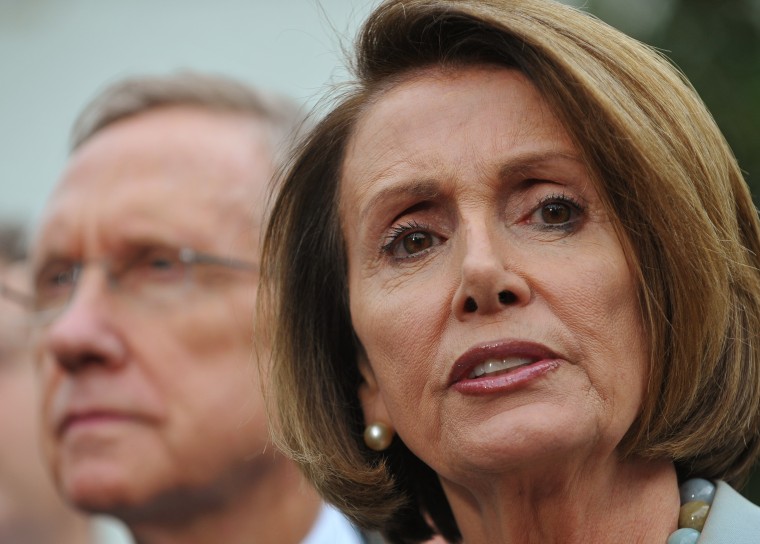In a coup for House Democrats, AARP will endorse sweeping health care overhaul legislation headed for a history-making floor vote, officials told The Associated Press on Wednesday.
An endorsement from the seniors' lobby was critical when then-President George W. Bush pushed the Medicare prescription drug benefit through a closely divided Congress in 2003. House Democratic leaders are hoping it will work the same political magic for them as they strive to deliver on President Barack Obama's signature issue.
An announcement from the 40-million member group is expected Thursday, said officials with knowledge of the group's decision. They spoke on condition of anonymity because the endorsement is not official yet.
Backing the 10-year, $1.2 trillion House bill is a tricky move for AARP. Many retirees are concerned about cuts in Medicare payments to medical providers, which will be used to finance an expansion of health insurance coverage to millions of working families who now lack it.
Counting votes
Floor votes on the House bill could come as early as this weekend. Asked Wednesday if Democratic leaders had the 218 needed for passage, House Majority Leader Steny Hoyer, D-Md., responded: "We're counting. We're counting."
House leaders moved on Wednesday to shore up support for the measure among the Democratic rank-and-file, even as they sharpened their fight with the health insurance industry.
Last minute changes to the legislation, released late Tuesday night, started a 72-hour legislative clock and cleared the way for votes as early as Saturday.
"Americans are ready for comprehensive health insurance reform and the House will soon act," Speaker Nancy Pelosi, D-Calif., said in a statement that accompanied dozens of last-minute changes to the bill.
'Unjustified premium increases'
In a move aimed directly at health insurance companies, the revised House bill would launch a federal-state crackdown on what it terms "unjustified premium increases." Insurers have sought above all to block creation of a government insurance plan, which happens to be the top legislative goal for liberals.
Under the bill, insurance companies would have to publicly disclose the justification for premium increases before they go into effect. The federal Health and Human Services department would monitor patterns of premium increases, and could take action if the price hikes are out of line. The bill would also provide $1 billion to state insurance commissioners, allowing them to ramp up their own monitoring and enforcement.
Democrats also strengthened a provision that would strip the industry of its decades-old exemption from federal antitrust laws.
Supporters said the tougher approach is needed to keep insurance companies from artificially boosting premiums in advance of the major reforms taking effect in 2013.
Other late changes to the bill, such as enhanced status for the government's office of minority health, were intended as sweeteners for supportive lawmakers, including members of the Congressional Black Caucus.
Abortion provision unresolved
With no Republican backing for the measure, Democrats will need overwhelming support from their own. A festering intra-party disagreement over how to prevent federal funds from being used to pay for abortion remained unresolved Wednesday morning.
The House bill is estimated to expand coverage to about 96 percent of eligible Americans. Beginning in 2013, it would provide government subsidies to extend coverage to tens of millions who now lack it, and ban insurance company practices such as denying coverage to people with pre-existing medical problems.
For the three years before the federal aid starts flowing, the bill would set up a temporary "high-risk pool" through which people who have been denied coverage because of poor health could obtain a government-subsidized policy.
The bill would set up health insurance "exchanges" through which self-employed people and small businesses could buy coverage, either from a private insurer or a new government plan that would compete. All the plans sold through the exchange would have to follow basic consumer protection rules, making it easier to shop and compare among them. The majority of Americans covered under big employer plans would not see dramatic changes.
The House bill would be paid for by boosting taxes on upper income earners and cutting Medicare payments to health insurance companies, hospitals and other medical providers. Democrats also moved Tuesday to close a biofuel tax credit loophole, raising about $23 billion to help pay for the legislation.
